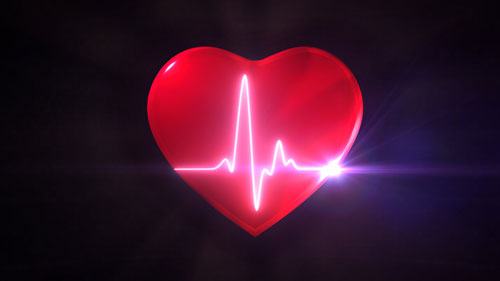Intermittent fasting is all the rage these days among people trying to lose weight. And justifiably so.
Study after study shows it works better than traditional low-calorie diets. Not only does intermittent fasting help people drop weight, but it helps them keep it off. Intermittent fasters are far less prone to regaining lost weight than conventional calorie-cutters.[1]
Now a new study shows that intermittent fasting’s benefits go beyond weight loss. It can make your heart stronger.
The research was conducted by the Intermountain Healthcare Heart Institute. Investigators followed 2,001 heart patients. They examined the patients’ lifestyles, including whether they practiced intermittent fasting.[2]
After 4 ½ years, scientists found that fasting—more than any other factor—helped people with heart problems survive. It lowered the risk of both heart disease and heart failure.
Scientists aren’t sure why intermittent fasting is such powerful medicine for the heart. But it has effects on hemoglobin, human growth hormone, and red blood cells that are associated with better heart health.
Two Ways to Go on an Intermittent Fast
Intermittent fasting is easier than conventional calorie-reduction diet programs.
There are two basic methods. Both are simple. There are no complicated recipes. No expensive frozen meals. No banned foods.
- The 5:2 Diet. On two days of the week, you restrict your calories to 25% of your normal intake. These are called “fast days.” On the other five days, you eat your normal diet. You can choose any two days as fast days—either consecutive or spaced out during the week. You can eat whatever you like—so long as you limit your calorie intake to 25% of your normal daily intake on fasting days. That is usually about 600 calories for men and 500 calories for women.
- Daily Fast. In this plan, you fast for 16 hours a day. You do all your eating within an eight-hour window. And you can eat anything you want in any amount during that time. For example, if you eat breakfast at 9 a.m., you then finish your dinner by 5 p.m.
On either plan, choosing filling foods without too many calories is best. These include:
- Vegetables, especially leafy greens.
- Smaller portions of meats, fish, or eggs. Bake, roast, or grill rather than fry.
- Soups. They can be filling and low in calories.
- Plenty of water. You can also drink black coffee or tea.
The study authors caution that pregnant and lactating women shouldn’t fast. Neither should frail older people, children, organ transplant patients, or people with suppressed immune systems or chronic infections.
Heart disease is the leading cause of death. Intermittent fasting is an important tool to help you avoid becoming part of that statistic.
Editor’s Note: Research shows the standard heart disease treatments—stents and statin drugs—don’t prevent heart attacks. Discover what does. Get the Heart Smart Protocol. It’s a simple, science-backed plan that prevents and treats America’s number-one killer naturally, without drugs or procedures. You’ll find it in our monthly journal, Independent Healing. Subscribe HERE.
Related Articles
Intermittent Fasting Works Better Than Regular Dieting
Yes, Fish Oil Is Good for Your Heart
Protect
Yourself from Heart Disease While You Sleep
Like this Article? Forward this article here or Share on Facebook.
[1]https://www.healthline.com/nutrition/10-health-benefits-of-intermittent-fasting#section1
[2]https://www.eurekalert.org/pub_releases/2019-11/imc-ifi111219.php

